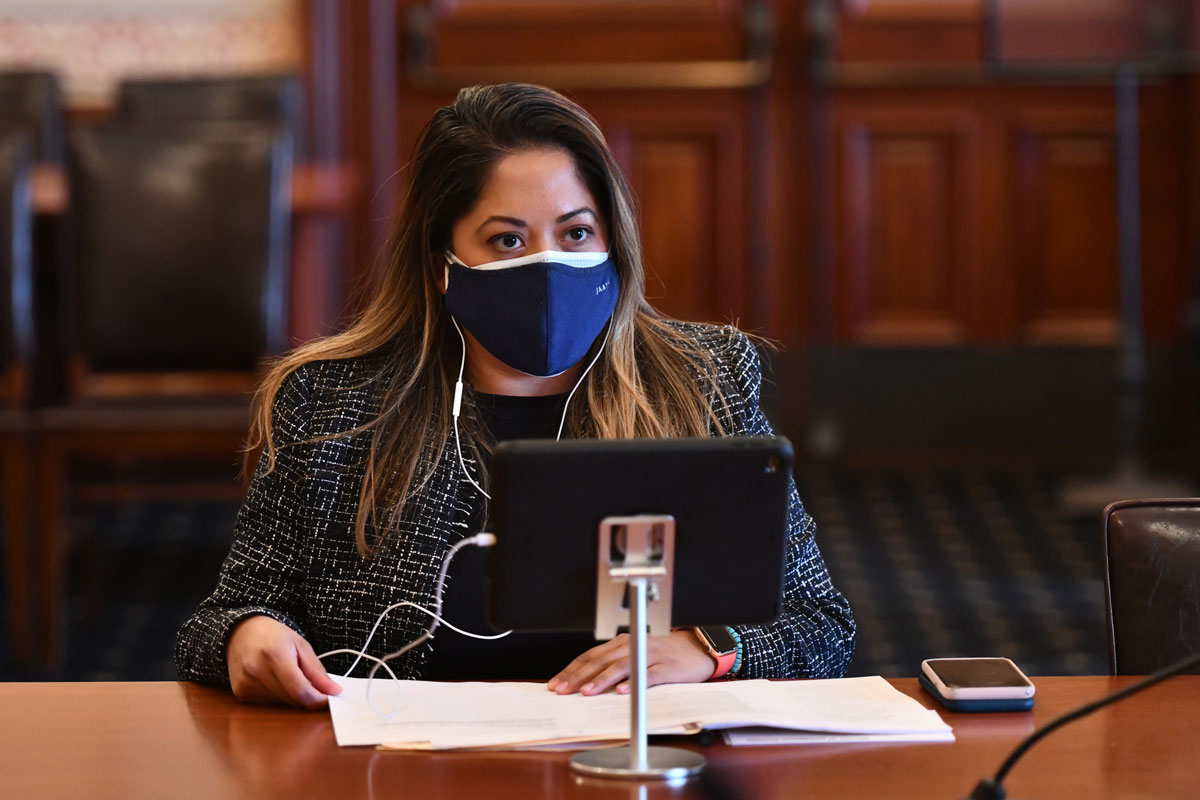- Details
- Category: Senator Julie A. Morrison News
 SPRINGFIELD – To help protect the lives of young children with food allergies, State Senator Julie Morrison (D-Lake Forest) championed a new law that will create anaphylactic policies for schools and day cares.
SPRINGFIELD – To help protect the lives of young children with food allergies, State Senator Julie Morrison (D-Lake Forest) championed a new law that will create anaphylactic policies for schools and day cares.
“Children spend most of their day at school, and both they and their parents deserve the peace of mind that comes with knowing that schools are well-equipped to assist when a student is having an allergic reaction,” Morrison said. “Creating a plan and training more employees on what to do if a student is having a reaction will save lives.”
Read more: Schools to make plans for responding to anaphylactic shock under new law by Morrison
- Details
- Category: Senator Julie A. Morrison News
 SPRINGFIELD – Survivors of domestic violence will now have an easier and more convenient way to prove they’re under an order of protection under a new law spearheaded by State Senator Julie Morrison (D-Lake Forest) signed Friday.
SPRINGFIELD – Survivors of domestic violence will now have an easier and more convenient way to prove they’re under an order of protection under a new law spearheaded by State Senator Julie Morrison (D-Lake Forest) signed Friday.
“We must do all we can to protect survivors of domestic violence and provide them with the peace of mind that they are safe,” Morrison said. “Part of helping them should be making that protection convenient and easily documented.”
Read more: “Hope Card” gives proof of an order of protection under new law by Morrison
- Details
- Category: Senator Celina Villanueva News
 CHICAGO – To keep women and children safe, legislation introduced by State Senator Celina Villanueva (D-Chicago) that would establish the Domestic Violence Fatality Review Committee was signed into law today.
CHICAGO – To keep women and children safe, legislation introduced by State Senator Celina Villanueva (D-Chicago) that would establish the Domestic Violence Fatality Review Committee was signed into law today.
“Families are counting on us to take proactive steps to prevent domestic violence,” Villanueva said. “Our plan creates dedicated teams of advocates and survivors to craft violence prevention policy in every corner of the state. These review teams will save lives and I am grateful to the governor for his commitment to keeping women and children in Illinois safe.”
Read more: Villanueva creates domestic violence committee to protect families
- Details
- Category: Senator Patricia Van Pelt News
 CHICAGO – A measure sponsored by State Senator Patricia Van Pelt (D-Chicago) and State Representative Lakesia Collins (D-Chicago) to create a Forensic Science Commission was signed into law Friday.
CHICAGO – A measure sponsored by State Senator Patricia Van Pelt (D-Chicago) and State Representative Lakesia Collins (D-Chicago) to create a Forensic Science Commission was signed into law Friday.
“This is why we have hearings, to guide the legislation that impacts culture,” Van Pelt said. “There are still people awaiting answers as the DNA backlog decreases, and a commission is needed to improve coordination between police and forensic scientists to help further the decrease in the backlog.”
Read more: Illinois to permanently establish Forensic Science Commission
- Details
- Category: Senator Ram Villivalam News
 CHICAGO – So students of all faiths can practice freely, a bill sponsored by State Senator Ram Villivalam (D-Chicago) and State Rep. Dan Didech (D-Buffalo Grove) that would provide students with five excused absences for religious holidays was signed into law today.
CHICAGO – So students of all faiths can practice freely, a bill sponsored by State Senator Ram Villivalam (D-Chicago) and State Rep. Dan Didech (D-Buffalo Grove) that would provide students with five excused absences for religious holidays was signed into law today.
“Illinois is a diverse state with several religious communities,” Villivalam said. “Our school calendar will now reflect the diversity of our state and allow students of all faiths the flexibility to practice according to their religious calendar.”
Read more: New Villivalam law allows students excused religious absences
- Details
- Category: Senator Laura Ellman News
 SPRINGFIELD – Public schools will recognize the historical and present-day contributions of Muslim Americans and those of other faiths in the state of Illinois under a new law sponsored by State Senate Laura Ellman (D-Naperville) that was signed into law on Thursday.
SPRINGFIELD – Public schools will recognize the historical and present-day contributions of Muslim Americans and those of other faiths in the state of Illinois under a new law sponsored by State Senate Laura Ellman (D-Naperville) that was signed into law on Thursday.
“It’s our responsibility to ensure all Illinoisans feel represented in this state,” Ellman said. “That begins by making sure students learn about people like them in school.”
Read more: New Ellman law ensures students learn about people like them in school
- Details
- Category: Senator Adriane Johnson News
 SPRINGFIELD – Students of all religious and cultural backgrounds can observe their traditions safely under a new law sponsored by State Senator Adriane Johnson (D-Buffalo Grove) that permits students to avoid rigorous physical activity at school during periods of religious fasting.
SPRINGFIELD – Students of all religious and cultural backgrounds can observe their traditions safely under a new law sponsored by State Senator Adriane Johnson (D-Buffalo Grove) that permits students to avoid rigorous physical activity at school during periods of religious fasting.
“Physical education class is a great opportunity for kids to stay active during the day, but during periods of fasting, it can be difficult to feel energetic,” Johnson said. “This law protects students’ right to do what’s best for their own health and wellness.”
- Details
- Category: Senator Linda Holmes News
 SPRINGFIELD – Health insurance companies use prior authorization on patients’ proposed treatments, meant to ensure they are medically necessary. However it often forces patients to wait too long for needed and appropriate treatments. House Bill 711, sponsored by Senator Linda Holmes (D-Aurora) to ensure more timely approval, was signed into law by the governor on Thursday.
SPRINGFIELD – Health insurance companies use prior authorization on patients’ proposed treatments, meant to ensure they are medically necessary. However it often forces patients to wait too long for needed and appropriate treatments. House Bill 711, sponsored by Senator Linda Holmes (D-Aurora) to ensure more timely approval, was signed into law by the governor on Thursday.
“It can be stressful for people requiring medical treatment, supplies and services to wait on approval for medical treatment, and these delays must end,” Holmes said. “For those with chronic or life-threatening conditions, it can be an ongoing battle for however long the treatment continues.”
Read more: New Holmes law shortens prior authorization delays by health insurers
More Articles …
Page 421 of 768













 © 2026 Illinois Senate Democratic Caucus
© 2026 Illinois Senate Democratic Caucus